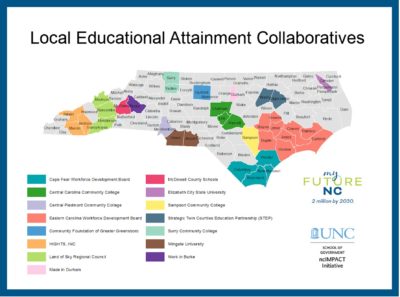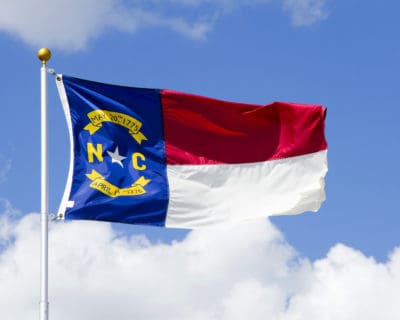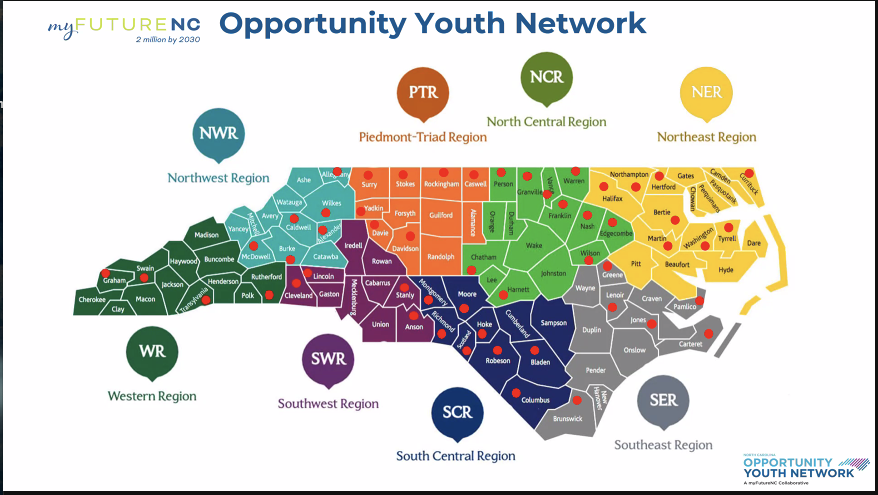

In fall 2021, myFutureNC launched the Opportunity Youth Network, a statewide collaborative for communities to address the growing concern of disconnected youth, or those who are neither in school nor working full- or part-time.
According to myFutureNC, more than 7% of youth in North Carolina were disconnected prior to the pandemic. Data suggests that number could more than triple as a result of the pandemic.
Categorized as individuals between the ages of 16-24 who are neither in school nor working full- or part-time, opportunity youth is one of 18 performance indicators on the myFutureNC attainment dashboard.
The dashboard was launched in Feb. 2020 and shows the state’s progress in meeting its educational attainment goal of 2 million North Carolinians credentialed by 2030. The dashboard also gives both state and local leadership a way to measure progress across the education continuum.
Fifty-three counties across the state are participating in the Opportunity Youth Network. Leaders and practitioners from these counties convene on a regular basis to learn and share effective practices to reengage opportunity youth and to prevent youth from becoming disconnected.


The network met for the second time on Dec. 7 to learn about two community approaches that aim to prevent or reengage opportunity youth: The Robert and Janice McNair Educational Foundation in Rutherford County and Tri-County Community College’s Adult High School program.
The McNair Educational Foundation has been in operation for nearly 30 years and has established a variety of programs to increase college and career success for Rutherford County Schools’ students. Monica Lee, executive director of the McNair Educational Foundation, discussed two of the programs established by the Foundation.
McNair mentorship program
Rutherford County is a Tier 1 economically distressed county located in the foothills of North Carolina. Over 70% of students in Rutherford County Schools qualify for free-and-reduced-price lunch. And only 17% of the county’s population has a bachelor’s degree or higher – which means most of the students in the county will be first generation college students.
The mentorship program matches every student who attends a Rutherford County traditional public middle and high school in 7th – 12th grade with an adult mentor. Presently, 3,500 students in Rutherford County Schools are served through the mentorship program.
The program is designed to support students’ academics, attendance, behavior, career interests, postsecondary plans, and more. Lee reiterated that the mentorship program does not replace school services or resources.
Mentors typically have a caseload of 15-18 students across 3 grade levels that they will follow from 7th grade through high school graduation. Each month, mentors meet individually with their students. While meetings are not scripted, the Foundation developed interview matrices for each grade level to help guide mentors during their meetings with students.
According to Lee, 80% of the mentors are retired, and 65% of those are retired educators. Various education levels and careers are represented among the mentors.
When the mentorship program began in 1992, 34% of seniors in Rutherford County Schools met the UNC system admissions requirements. In 2019, 86% of seniors met the requirements. Lee stated that Rutherford County Schools’ graduates are above the national average for college enrollment for low-income, rural schools.
The same is true for their Free Application for Federal Student Aid (FAFSA) completion rate.
“In 2020, when the national [FAFSA completion] rate dropped drastically, our completion rate actually went up,” Lee said.
Both the dropout rate and graduation rate for Rutherford County Schools are the best they’ve been in their history, at 4% and 87%, respectively.
GPS 4 Success
Despite an above-average postsecondary enrollment rate, the postsecondary completion rate in Rutherford County was below the national average. To combat this, the McNair Foundation started GPS 4 Success, a program designed to support students to improve college persistence and completion.
Each of the county high schools has a dedicated GPS program coordinator. Those coordinators work to build relationships with seniors prior to their graduation. The coordinators also assist students with completing the college enrollment process, financial aid, career exploration, and more.
An early evaluation that compared enrollment rates and stop out rates between treatment (participated in the GPS program) and control (did not participate in GPS program) groups found the following results.
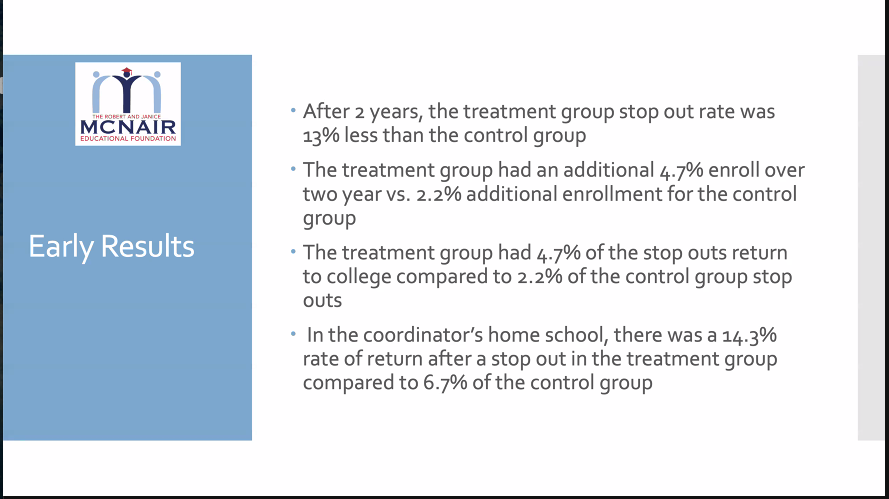

Lee said the close working relationship with Isothermal Community College and accessing National Student Clearinghouse data helps track the program’s success.
Renee Collins, assistant superintendent of Rutherford County Schools, said the school system is willing to work alongside McNair with school systems who may be interested in starting similar programs.
“Our district is so fortunate to have the McNair Foundation and community support for our students,” Collins said.
Adult High School Program
Tri-County Community College is also working to reengage opportunity youth.
The college partners with the public school systems in both Cherokee and Clay counties to engage young people at risk of dropping out of high school.
The Adult High School program was designed by the N.C. Community College System to offer adults and opportunity youth the ability to earn a high school diploma. Currently, 45 of the 58 community colleges in the system offer an adult high school program.
According to Roarke Arrowood, dean of institutional effectiveness and academic support at Tri-County Community College, and Erika Gillis, college and career readiness instructor and transitions specialist at Tri-County Community College, the adult high school program is meant to capture students who are considering dropping out of high school. The program is not intended to take students out of the school systems, but rather to provide an alternate route for students who are already considering dropping out.
If an LEA (local education agency) signs an affiliation with their local community college, students under the age of 18 are allowed to participate in the Adult High School Program.
The Adult High School model allows students to work at their own pace and even offers flexibility in their coursework, including online, face-to-face, and hybrid. During the program, students receive academic support and tutoring.
At Tri-County, the Human Resource Development program is available to students in the Adult High School program. Students can explore careers, receive resume assistance, participate in mock interviews, and more.
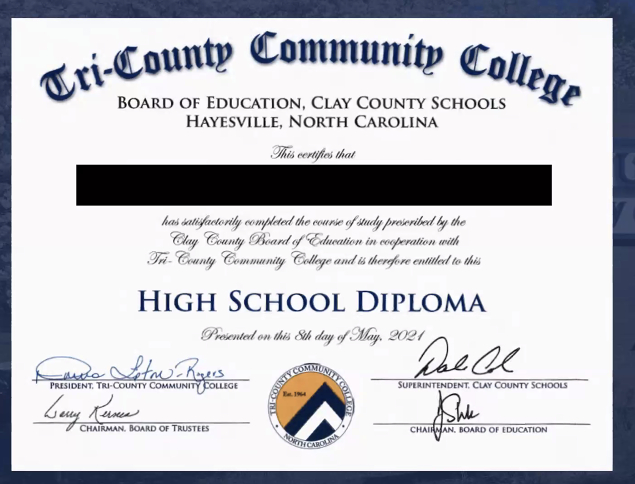

Arrowood and Gillis shared that upon successful completion of the program, students receive a diploma from both the community college and the school district. They also noted that school systems are able to count these students as successful graduates and not dropouts.
To view information about the additional 17 educational performance indicators on the myFutureNC dashboard, click here.
The next webinar for those participating in the Network will be announced in early 2022.


